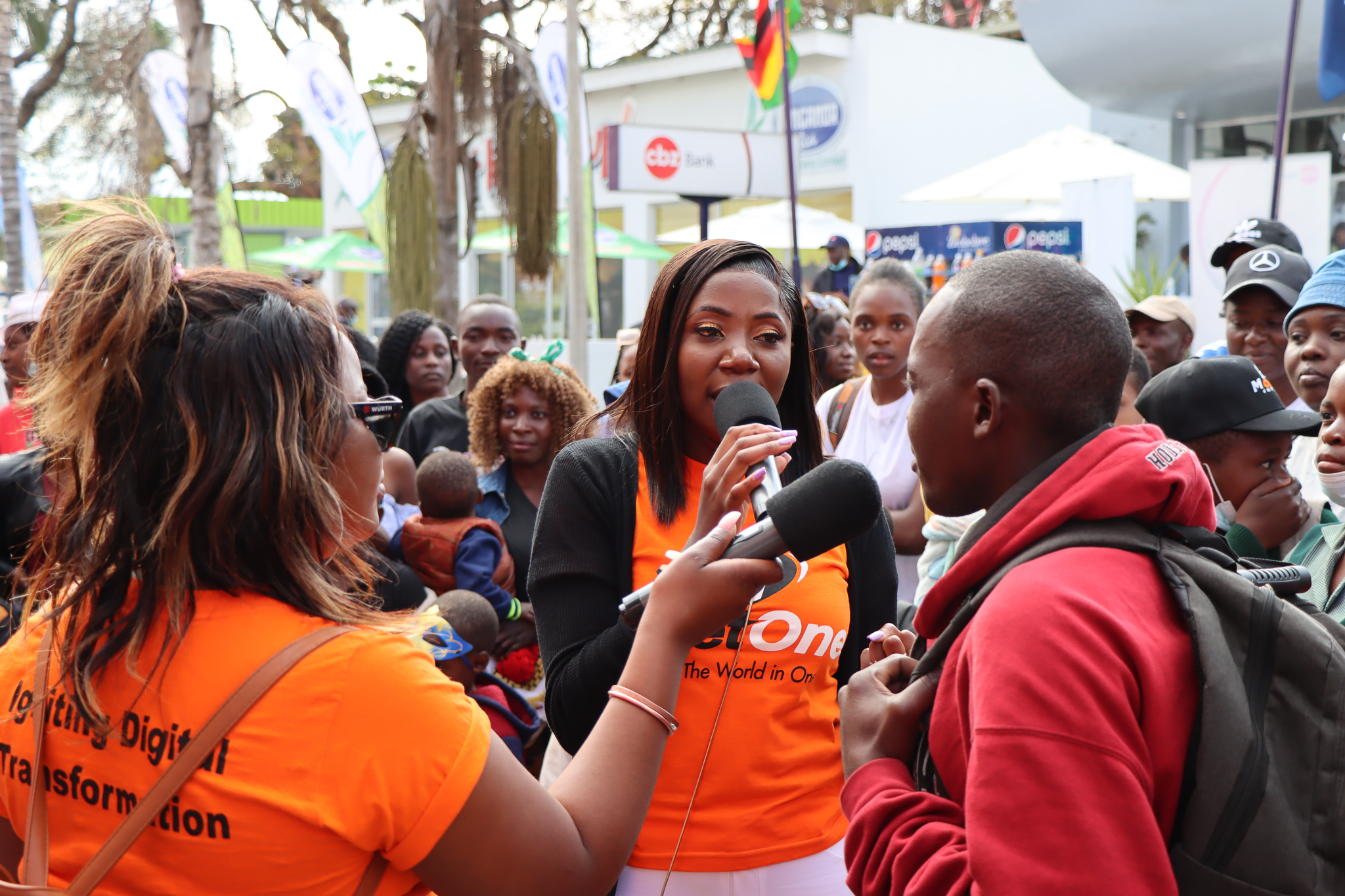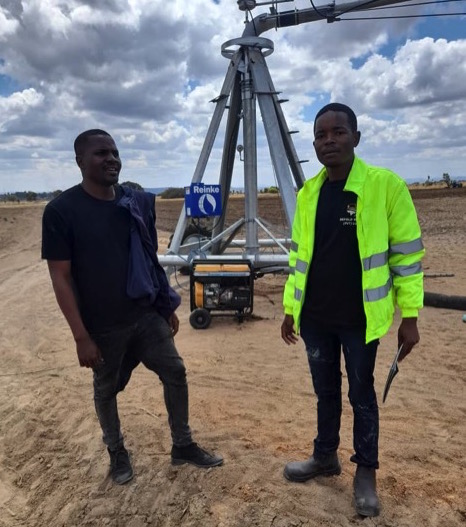|
Getting your Trinity Audio player ready…
|
With the country recording an increase in mining-related fatalities, NetOne’s e-Health platform – OneHealth, a digital, mobile phone-based health solution that can be accessed via USSD to provide health tips, health-based loans, and insurance at a very low cost, is a possible game-changer and a panacea to the challenge.
NetOne is one of the leading corporates with a lively exhibition stand at the ongoing Zimbabwe Agricultural Show in Harare that is running from 29 August 2022 to 3 September 2022. The company is recording a record number of inquiries with hundreds of people subscribing to the mobile telephony network on a daily basis during the lucrative agricultural showcase.

According to the latest statistics, Zimbabwe has recorded over 463 fatalities in the mining industry in the past three years as a result of not having enough enforcement of mining regulations due to the increase in the number of mining locations and not enough resources availed to the inspectorate.
“Most miners are not taking issues of health and safety seriously. There is a disregard for mining regulations by registered and unregistered (illegal) miners and a lack of proper mining knowledge and understanding of the mining environment.
“The Zimbabwe Safety Health and Environment Council (ZIMSHEC) has been teaching the artisanal and small-scale mining (ASM) sector about the importance of safety. ZIMSHEC has been recognized by the President of Zimbabwe Comrade Emmerson Mnangagwa for its role in reducing mine accidents in the ASM. In order to improve the dissemination of such information in the mining sector, a collaboration with mobile telephony giants like NetOne, through its OneHealth platform will be handy since the service is available for anyone with a phone and a Simcard,” said Mr. Nyasha Magadhi, the Managing Director of WeMine Zimbabwe.
Roseline Chisveto, the NetOne Head of Marketing and Public Relations said her company welcomes suggestions by the mining sector players for OneHealth to come up with tailor-made messages on mining sector health and safety.
“A healthy nation is indeed a productive nation. In our endeavour to provide ubiquitous digital solutions across all sectors, NetOne will come up with messages on health and safety tips targeting the mining sector as well. We will continue to innovate and be the critical information providers from personal hygiene to water, safety, and health (WASH) issues,” Chisveto said.
In the large-scale mining sector, fatalities have been on the decrease with companies like Bindura Nickel Corporation (BNC) achieving over 3.5 million fatality-free shifts this year thanks to the Chamber of Mines safety and health committee.
WeMine Zimbabwe pledged to work with relevant stakeholders in mining like ZIMSHEC, School of Mines, and Midlands State University (MSU) among others to ensure that the country achieves a zero harm mantra.
In the mining sector, with the Green deal on the cards, Africa is set to benefit as Western countries seek to meet the climate neutrality goal by 2050 which requires 35 times more lithium and 7 to 26 times the amount of rare earth metals compared to Europe’s current use.
The energy transition requires 30% more aluminum than what is employed today in Europe as well as more copper, 45% more silicon, and 100% more nickel.
Zimbabwe’s mining economy could reach the $12 billion mark faster than anticipated.
“The volatility of the global economy would buoy the price of gold as investors seek safe havens for their investments. Unfortunately, the high price advantages would be offset by some high input costs in the mining industry especially related to fuel and explosives.
“The US$12 billion is a monetary number which is not supported by specific increases in production volume. When this number was coined, there wasn’t any anticipation of such price increases which we are experiencing at the moment.
“This environment where some commodity prices are quite high like Nickel, Palladium, and gold accelerates a quicker attainment of the US$12 billion mining economy,” said Mr. Thomas Gono, the CEO of Golden Reef mining company.
Beneficiation and value addition of minerals before exporting is one of the key components of accelerating economic growth and development since the mining value chain is not being exploited and the need for high-level technical and manufacturing expertise and comprehensive research and development activities are acute in Africa.
WeMine Zimbabwe has an ambition to revitalize the mining sector in Zimbabwe and their key focus areas include mine pegging, beacon installation EIA and EMA consultancy, exploration, geophysics, diamond drilling training, contract mining, mining operations services, timbering, high gear levers, buying of gold dumps and construction of mills and tanks.
WeMine Zimbabwe has been calling for youths to form syndicates so that they will be assisted in building mining companies that can compete on a global scale as well as create employment.
“The youths are the future, therefore, should be leading in terms of lithium investment for the country to benefit in this rush. We feel that there should be a policy focused on empowering the youths in the extractive sector.
The policy should touch on syndicates (raising youth syndicates maybe to 10), youth funding, prioritizing tributes for youth among other things. The government should also implement a mineral-based policy like the diamond policy and give the youths priority for a better tomorrow,” said Mr. Nyasha Magadhi Managing, Director of WeMine Zimbabwe.
